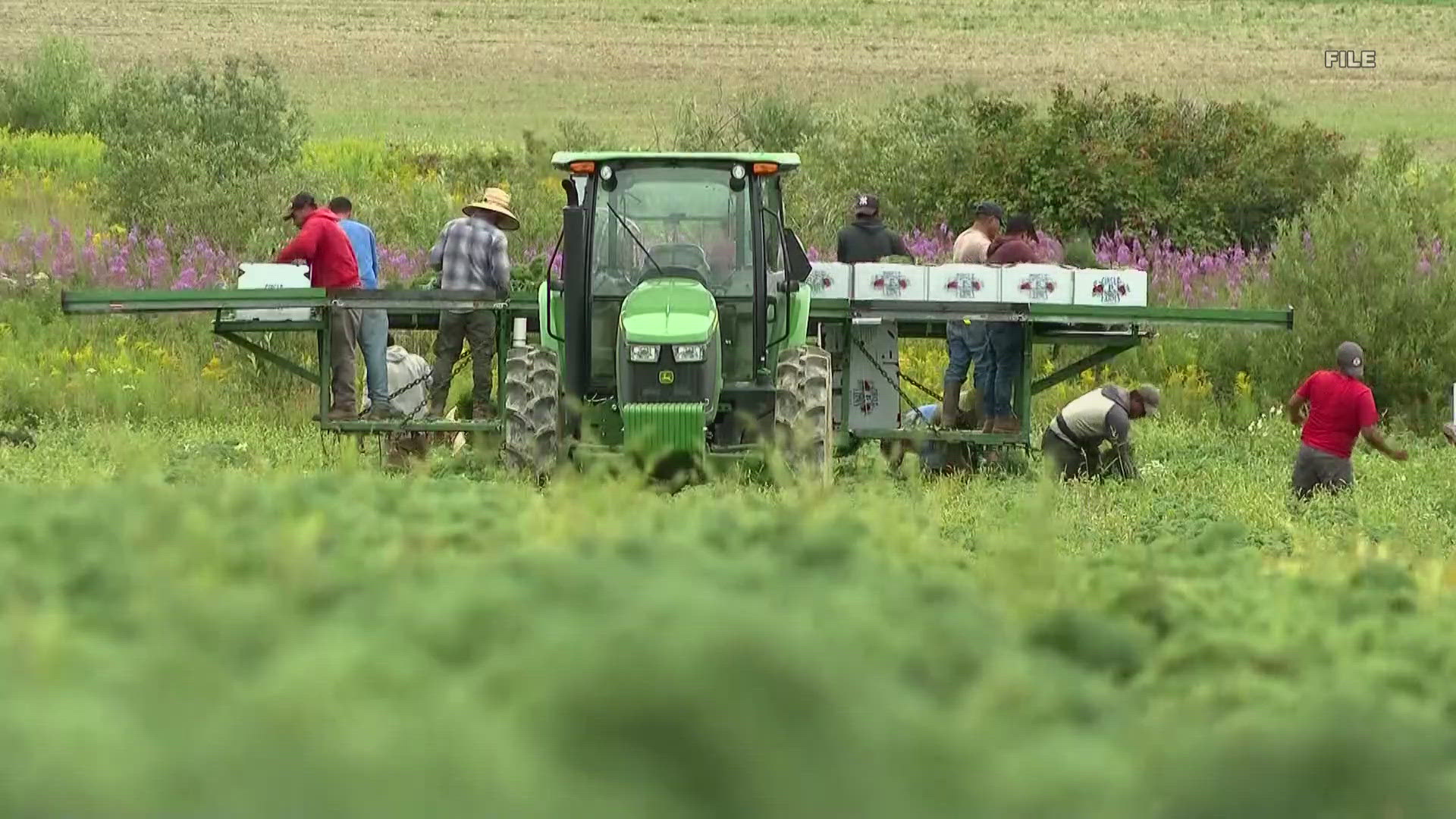AUGUSTA, Maine — Democratic Gov. Janet Mills vetoed two farm worker rights bills on Tuesday, including one she put forth herself after forming a committee to craft it.
LD 525 would give farm laborers the right to engage in so-called "concerted activity," like discussing labor conditions, without fear of losing their jobs. Mills said it over-complicated labor laws for an industry already facing multiple challenges.
"Against this background, I cannot subject our farmers to a complicated new set of labor laws that will require a lawyer just to understand," Mills wrote, in an explanation of her decision. "Now is not the time to impose a new regulatory burden on our agricultural sector, and particularly not family-owned farms that are not well positioned to know and understand their obligations under a new such law."
LD 2273 would extend the state’s minimum wage of $14.15 per hour to farm workers. Currently, the federal Fair Labor Standards Act in Agriculture imposes the federal minimum wage of $7.25 per hour on farm workers, with some exemptions for things like farms that require small amounts of "man-days" or the number of "man-hours" in a given period.
Last July, after vetoing a previous farm worker minimum wage bill she found unsatisfactory, Mills created the Committee to Develop and Implement a Minimum Wage Bill for Agricultural Workers —a collection of stakeholders including employers and employees— to brainstorm a new bill.
LD 2273 was that bill. But Mills disagreed with an amendment added by the labor & housing committee, that said the state department of labor would not have the exclusive authority to bring legal action for unpaid wages on behalf of an agriculture employee. In other words, a worker could retain an attorney and file suit against a farmer without going through the Department of Labor.
That change was a step too far for Mills.
"I believe, and agree it is important, that workers should have the right to pursue recourse for alleged labor violations," she wrote. "That is why my bill, as originally drafted, entrusted that enforcement responsibility to the Maine Department of Labor, an approach that rightly provides individuals who allege labor violations with the ability to ask the Department to investigate and then take action where appropriate."
As they were with LD 525, stakeholders were split on this veto.
"There really was one person and one person only who raised that idea of denying workers the private right of action, and that was Governor Mills," Heather Spalding, deputy director for the Maine Organic Farmers and Growers Association and a member of Mills' bill drafting committee, said.
"It is embarrassing and insulting to farm workers and every worker that the governor would veto this compromise bill, her own bill, to guarantee farm workers the most elementary protection of the state minimum wage," Matt Schlobohm, executive director of the Maine AFL-CIO and committee member said.
"I think the biggest concern would be that litigation," Jeannie Tapley said.
Tapley is a fellow member of the committee and the executive director of the Maine Potato Board, representing 250 growers statewide. The potato board pulled support for the bill once the amendment was added, and Tapley agreed with Mills that the Department of Labor should handle worker legal action, fearing, win or lose, farmers would take on legal bills when many are dealing with multiple financial challenges.
"We fully support that farm agriculture minimum wage," Tapley added. "I wish that it could have been passed as that original language."
Juana Rodriguez-Vazquez was on the committee and is the executive director of Mano en Mano, which advocates for migrant agricultural and fishing workers.
"The Governor is not just vetoing legislation. She is vetoing farmworker rights," she wrote in a message Wednesday evening. "She is vetoing workers’ rights. And she is vetoing justice for one of the most marginalized and impoverished communities in Maine."
The legislature could vote to overturn the vetoes. However, since they passed with tight margins, Schlobohm and Spalding weren't counting on that.

